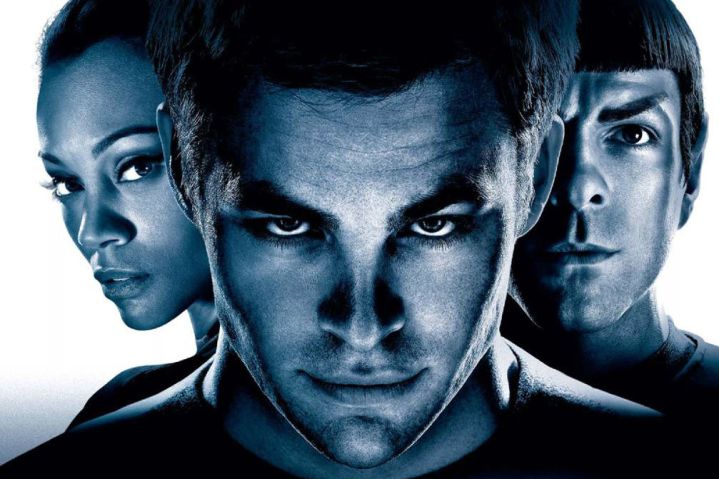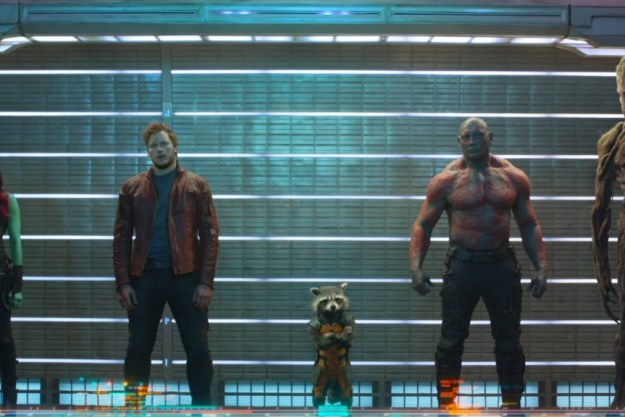The merger of CBS and Viacom made headlines last week when the two corporate media giants confirmed their reunion and the creation of the joint entity ViacomCBS, which now contains the entire CBS television library and Paramount Pictures movie vault, among other noteworthy elements.
The merging of those two powerhouses is particularly important for Star Trek fans, who now find their beloved sci-fi franchise united under a single corporate banner for the first time since CBS and Viacom split in 2006. Instead of CBS having sole control of the television side of the Star Trek universe while Viacom’s Paramount studio controlled the movie rights (beginning with J.J. Abrams’ 2009 reboot of the film franchise), Star Trek now finds itself primed for its own Marvel-style cinematic universe — and the possibilities are as endless as the voyages of the USS Enterprise.
Given the current state of the Star Trek universe, the reunion couldn’t have come at a better time.
The needs of the many
On the television side, CBS’ subscription-based streaming video service, CBS All Access, is currently riding high on the success of Star Trek: Discovery, its prequel series set in the years before James T. Kirk captained the Enterprise in the original Star Trek series.
Following the show’s success, three more series are currently in development, including the much-anticipated return of Star Trek: The Next Generation actor Patrick Stewart as Jean-Luc Picard in Star Trek: Picard, as well as a Discovery spinoff starring Michelle Yeoh and an animated series, Lower Decks.
Things are considerably less certain on the movie side.
Development of a fourth Star Trek film — the sequel to 2016’s Star Trek Beyond — has effectively stalled out due to franchise star Chris Pine backing out of the project. Pine and Chris Hemsworth, who was set to reprise his role as James Kirk’s father in a time-travel narrative, were both initially attached to the film, only to cut ties with it over a behind-the-scenes dispute with the studio. Filmmaker S.J. Clarkson was attached to direct the film, but her involvement is also uncertain now that she’s working on the Game of Thrones prequel series.
Beaming up, Marvel-style
With the TV side of Star Trek currently leading the way, the reunion of CBS and Viacom means that there’s no pressure for another film in the franchise’s rebooted “Kelvin” timeline — the one that began with Abrams’ Star Trek and recast the original series’ iconic roles — to be rushed to the screen. That might not seem all that important, but the opportunity for the studio to take its time developing the next big-screen installment of the series could pay off in a big way.
CBS already has a hit on its hands with Discovery, which introduced an entirely new cast of characters and expanded the existing mythology of the franchise. We’ve seen that success translate into a spinoff series that will explore the shadowy Section 31 agency with Yeoh’s Discovery character, Philippa Georgiou, likely opening the franchise up to some darker themes. Similarly, the first episode of Star Trek: Picard has yet to premiere, but the series appears primed to tackle some concepts — such as life after Starfleet — that other Star Trek projects haven’t fully explored.
With the Star Trek movies now able to walk in the same universes as the TV shows, the full breadth of Star Trek characters and concepts are now able to get the big-screen treatment.
Much like the Marvel Cinematic Universe, the Star Trek franchise can mix and match elements from all of its various iterations — from Discovery to Picard to the rebooted Kelvin universe — with the freedom to build and define its all-encompassing mythology. It’s that kind of relationship between the films and TV projects that initially made Star Trek such a hit, with fans of the TV series filling theaters for the “event” films, and the films pushing audiences back to the TV series.
Engage!
A unified Star Trek franchise also offers the opportunity for the studio’s creative minds to deliver answers to some of the big questions surrounding the sci-fi series.

One of the biggest questions to be answered involves what form a unified Star Trek universe will take. With Abrams’ films forging a new timeline for the saga, the nature of how that Kelvin universe connects with The Next Generation, Discovery, and some of the other TV shows can finally be resolved going forward.
Can Picard and the recent films be set within the same universe? Which universe is Discovery a prequel to? Where does the original series shake out in all of this? These are just a few of the continuity mysteries that can be solved with some clever integration of the new, unified Star Trek universe.
Boldly going
With Discovery and Picard already well into production, it’s likely to be some time before we get our first look at where this new, unified Star Trek saga will bring its characters and fans.

One of the guiding principles of the Star Trek franchise has always been a willingness to push the boundaries of what science-fiction can do and the themes it can explore — both on and off the screen. Shows like Star Trek: Deep Space Nine and Discovery busted the traditional format of Star Trek on TV by setting the series on a space station instead of a ship, and telling a season-long, serialized story, respectively.
Abrams, for his part, put a fresh twist on the notion of a franchise reboot with his first Star Trek film.
There’s no telling where the Star Trek franchise is headed on the big screen at this point, but the future is wide open now that all of the TV and movie adventures can move freely between mediums. Will CBS build origin-story series that connect to the films? Will new Star Trek films return to The Next Generation characters? It’s anybody’s guess at this point.
No matter what the future holds for Star Trek, a unified universe is a good thing for fans, and makes the final frontier something to be excited about all over again.
Editors' Recommendations
- Star Wars could’ve had Christopher Walken as Han Solo and Jodie Foster as Princess Leia
- The Marvels: How many post-credits scenes are there in the latest MCU movie?
- How do I get into Star Trek? A guide to how to watch the beloved sci-fi franchise
- Disney shifts release dates for Marvel movies, Star Wars films, and Avatar sequels
- Star Trek: Strange New Worlds season 2 trailer unveils Lower Decks crossover




